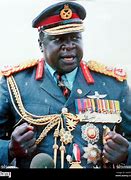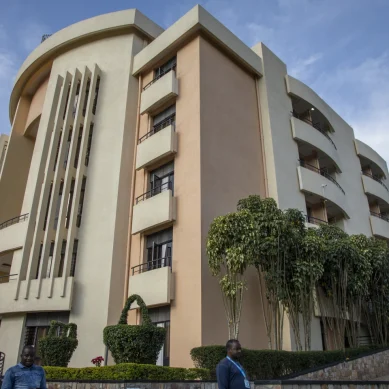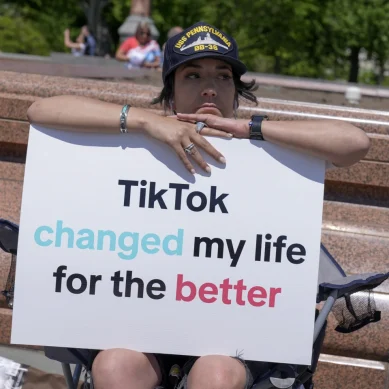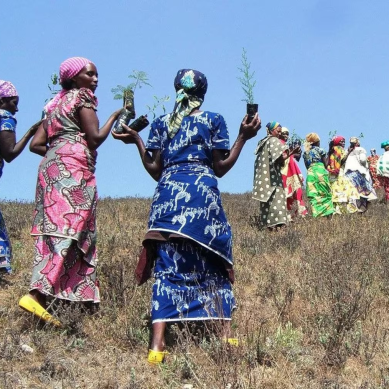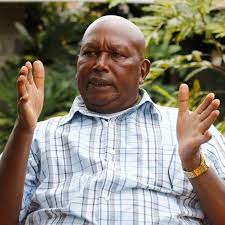
When he was interviewed on Citizen Television’s Wednesday evening talk-show JKLive, former head of Presidential Press Unit Lee Njiru recalled an incident (or accident) that inadvertently hoisted him to a vantage position in former Kenya President Daniel arap Moi’s State House.
The Kenyan delegations to a United Nations Conference in New York had been barred from the venue because they did not have accreditation. The delegation led by former assistant minister for education Prof Julia Ojiambo had forgotten the documents in Nairobi, which forced then UN Secretary General Kurt Waldheim to bar from the conference. President Moi dispatched Njiru – a journalist he had inherited from founding President Jomo Kenyatta – to take the documents to the Kenyan delegation.
Prof Ojiambo’s act of ‘commission of omission’ opened doors to Njiru who after he delivered the documents had unrestricted access to the president for more than 42 years till his death in 2019.
Now retired and living what he describes a quiet life – “in a house to live in, another to live on” – Njiru lifts the veil on the murky world that is the country’s seat of power, where ordinary Kenyans imagine is heaven.
Titled, Lee Njiru Memoirs: President’s Pressman the journalist delves into bizarre happenings at State House – all under the nose of the president.
The memoir is a horror story that details the extent of fornication, poisoning, drug abuse, witchcraft, alcoholism, corruption, tribalism, raw greed for power and vicious competition for plum positions in State House. In short, the House on the Hill is a ‘Citadel of Evil’ that has permeated the Kenyan body politic.
Besides tribalism, some people that I worked with went to unimaginable levels to protect their jobs and other favours. Working for State House was lucrative. Allowances were fat, foreign trips so frequent, influence so great, that it was devastating and degrading to be transferred from this seat of power.
To forestall such an eventuality, junior officers offered money to those who wielded the power to recruit and transfer. Some ladies, even the married ones, offered sexual favours to remain in State House. Witchcraft and all manner of occult science were employed by those who believed in supernatural interventions.
Farts in the President’s office: A senior lady at State House was caught with her pants lowered and busy farting in President Moi’s office. She was directing her farts in all directions.
Luckily, the farts were not productive; just a crackling noise, like that of gunfire. The lady’s loose morals were in the public domain. She feared that President Moi might get the information and have her transferred. That is why she got the advice of a witch doctor. She was lucky that she was caught doing this unpleasant ritual by a fellow tribesman. They settled the matter their own way.
Squirrel tail in locker: In another incident, President Moi came to the office in State House, Nairobi, earlier than expected. He received some guests who needed a photograph with him. Unfortunately, the photographer on duty had not arrived.
The Presidential Press electronics engineer, Wilberforce Onamu, and myself were capable of taking photographs. We broke into a photographer’s drawer to get the camera. We were shocked to see that the camera was tied with the tail of a squirrel. All the same, I used the camera and got beautiful photos. Onamu got scared and refused to touch that camera.
Juju from Zanzibar: A senior security officer, part of the presidential bodyguards, also engaged in witchcraft. Every time we were in Mombasa, I used to see him in the company of a light-skinned middle-aged man. I did not know his real name because he was commonly known as Vespa.
This is because he used to ride a Vespa scooter. To me he appeared to be a crossbreed of an Arab and a black person. I could not figure out what brought these two together. At first, I thought it was because the security officer was half Caucasian and half black. The coastal fellow was semi-literate and uncouth.
The security man was also semi-literate, but good at his work. He steered clear of the company of educated people because he could not stand any intellectual challenge. One day in Mombasa, Vespa let the cat out of the bag. “Are you properly protected? I have brought fresh supplies from Zanzibar,” he impressed on me. “What supplies?” I asked him. “Paraphernalia to ensure you remain on the job.
It will also guard you against backstabbing. All evil plans against you will be rendered ineffectual,” he explained. “Have you succeeded in protecting anybody that I know?” I enquired.
Without keeping a secret, he revealed to me that the security officer was one of his biggest customers. He also told me that the security officer received reinforcements every month.
I told him in no uncertain terms that my mother would curse me if I got involved in such revolting and repugnant practices. It appeared to me that the purveyor of these magic paraphernalia and potions did not believe in their efficacy, but was capitalising on the gullibility of officers who felt insecure.
- A Tell report / Courtesy: Lee Njiru
